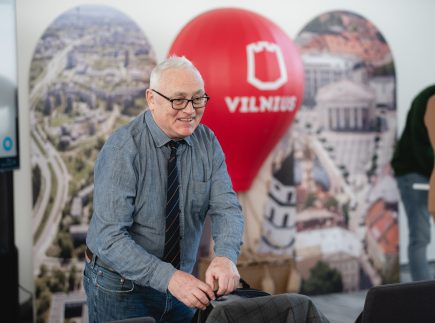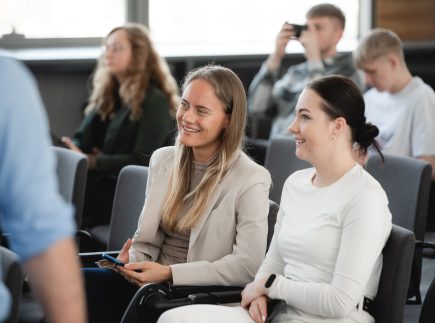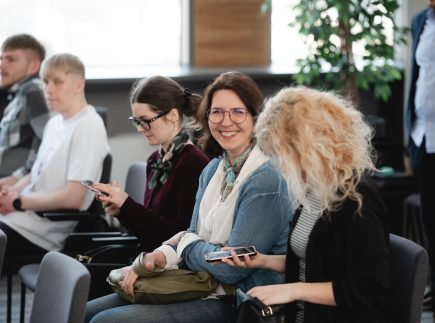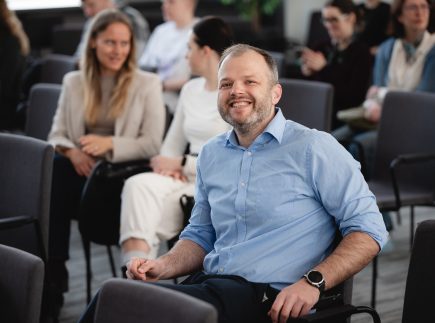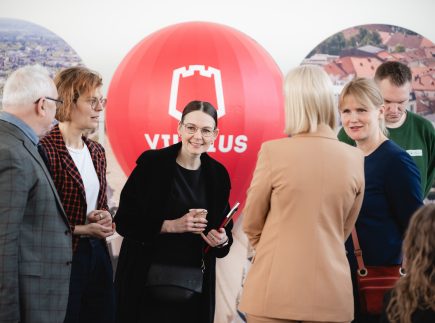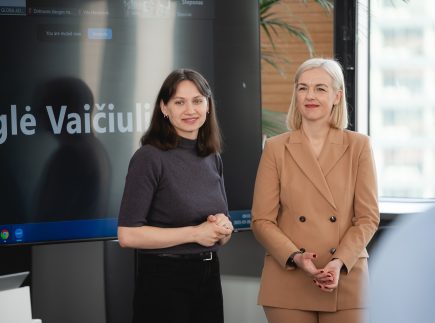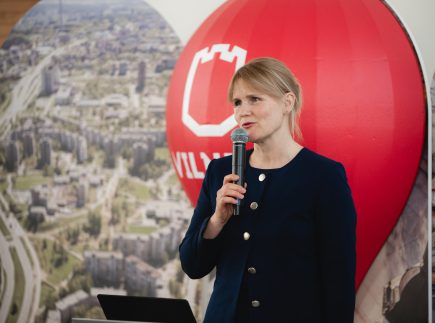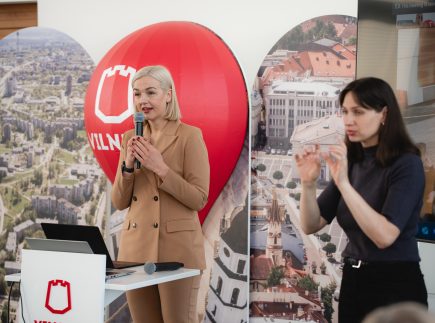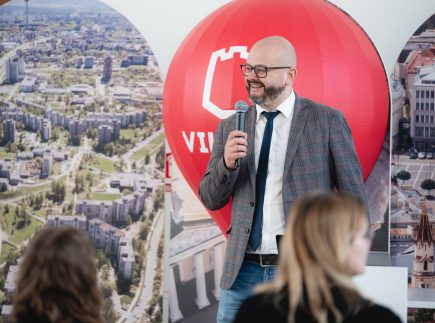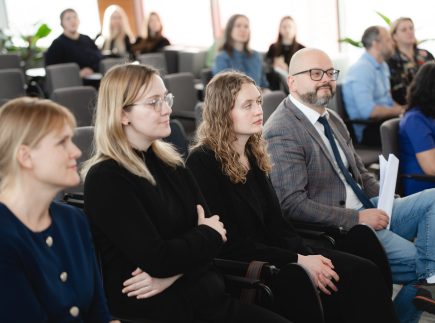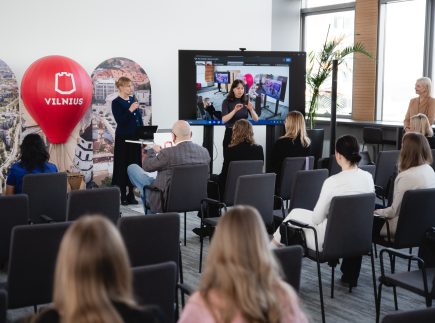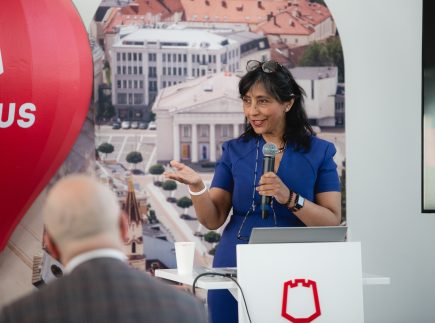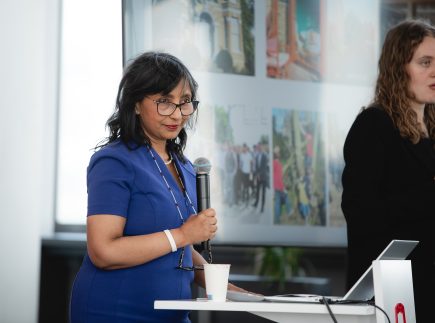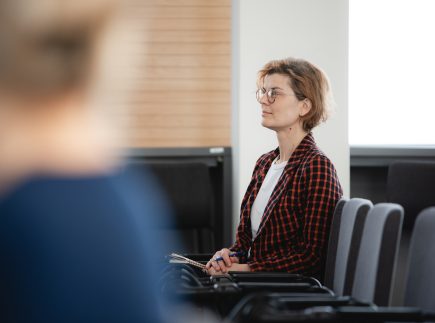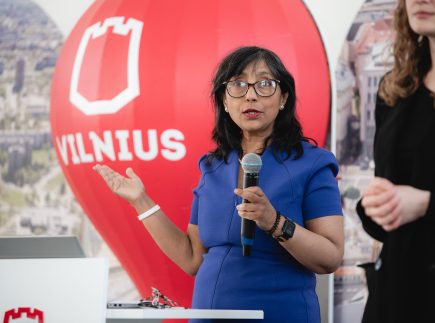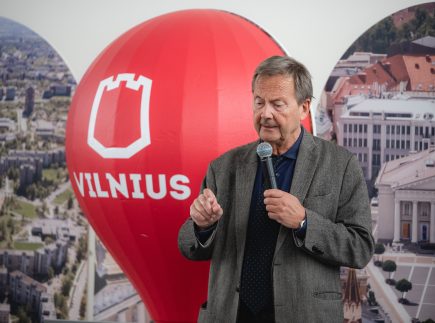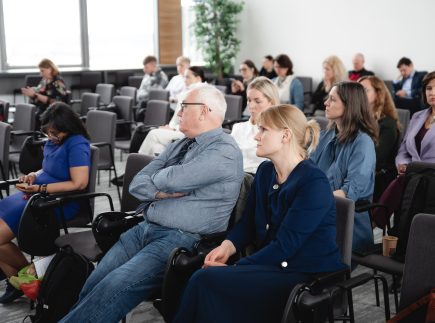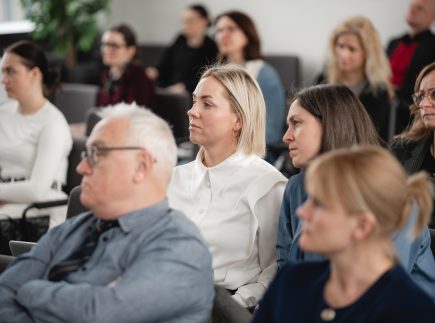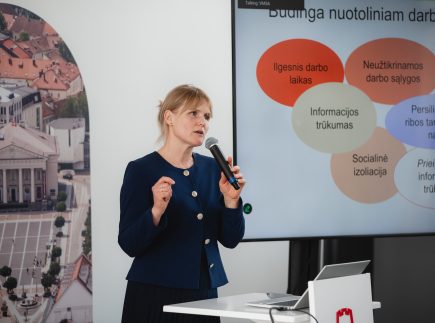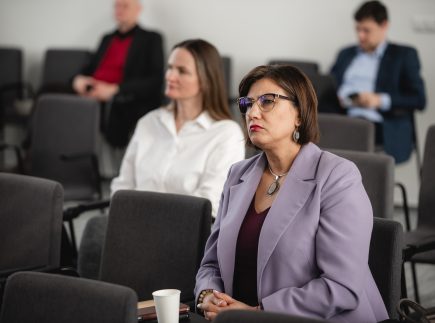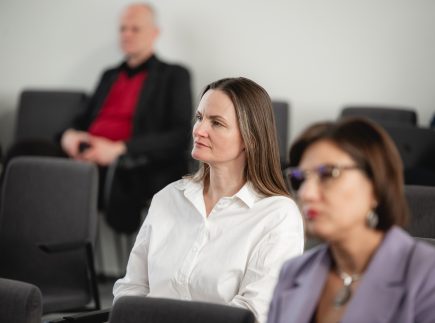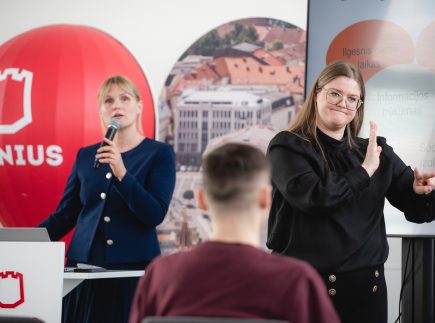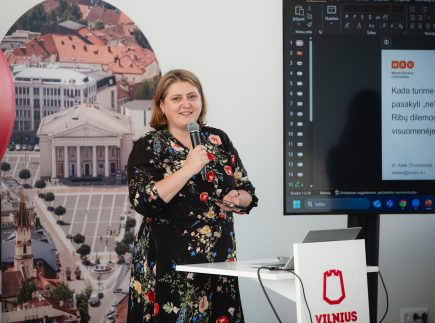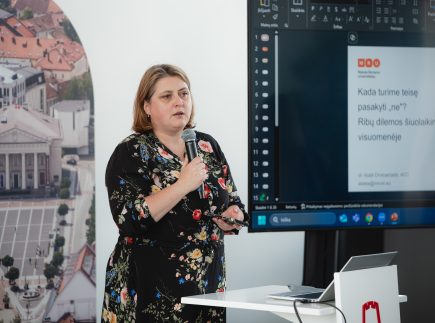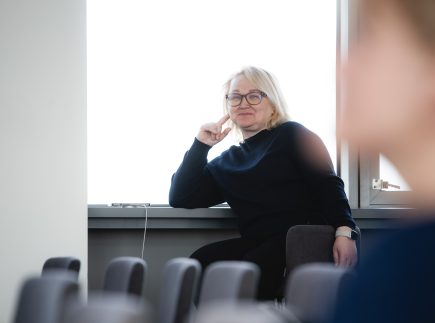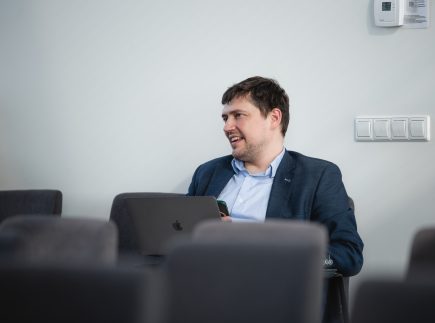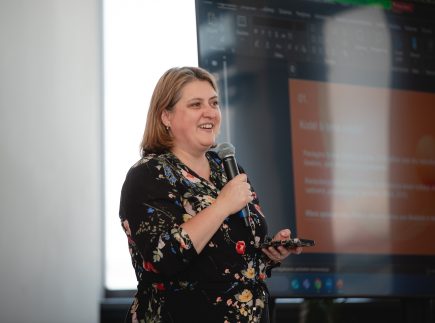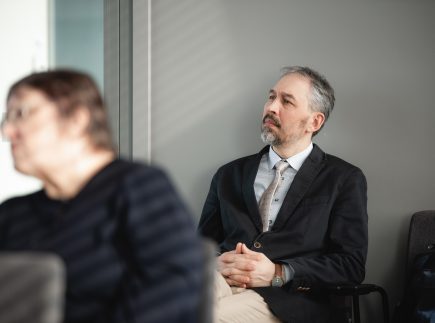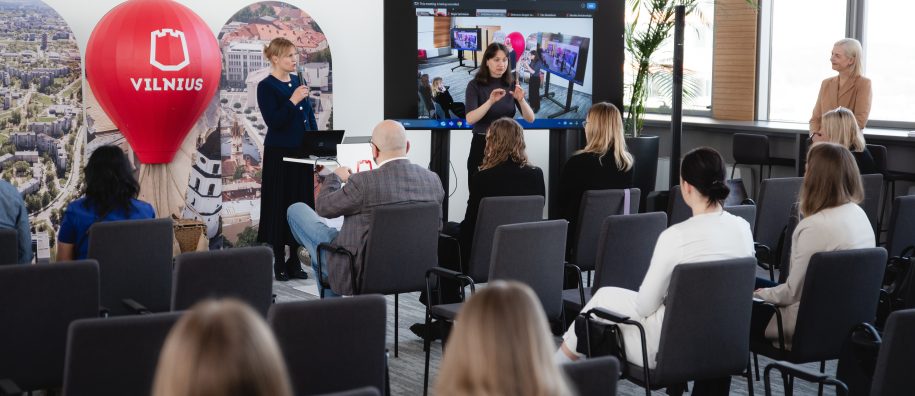
Have you ever considered that your work environment could directly impact not just your well-being but also your health? This very idea became the central theme of a scientific conference organized at the end of March by Mykolas Romeris University (MRU) in collaboration with Vilnius City Municipality.
The event, titled "A Multidisciplinary Approach to Human Health and Well-being at Work: Medical and Social Science Perspectives," was initiated by Prof. Dr. Agota Giedrė Raišienė, head of the MRU Science and Innovation Center’s Social Inclusion and Leadership Research Laboratory. Experts from social and medical sciences gathered to share insights on how the work environment and various environmental factors influence the physical, psychological, and emotional health of different groups of people.
Distinguished Guests on Inclusive Architecture
On the eve of the conference, MRU welcomed two distinguished lecturers—universal design expert and architect Hansel Bauman from the USA and Royal Institute of British Architects (RIBA) member, architect Sumita Singha from the UK.
The guests not only delivered public lectures at the university but also met with MRU Rector Prof. Dr. Inga Žalėnienė, who introduced them to the history and activities of the university. The rector highlighted that MRU, the youngest state higher education institution in Lithuania, celebrates its 35th anniversary this year, coinciding with the anniversary of Lithuania’s restored independence.
Today, MRU is the largest specialized university in Lithuania for social sciences and humanities, operating in three regions of the country. The university consistently strives for social inclusion—welcoming students with diverse needs, including international students arriving through the Erasmus exchange program. Five years ago, MRU launched a sustainable development strategy emphasizing an accessible and inclusive learning environment for all.
During the meeting with international experts, Prof. Dr. Inga Žalėnienė discussed the importance of universal design principles in the planned reorganization of MRU spaces—to make the university even more inclusive and sustainable.
Architecture That Changes Lives
Hansel Bauman is widely recognized for his innovative projects, particularly at Gallaudet University (USA)—the world’s only university dedicated to students with hearing impairments. He emphasized that the environment can significantly impact learning efficiency, communication habits, and well-being. He developed the "DeafSpace" concept, based on visual connectivity and acoustic solutions, allowing deaf and hard-of-hearing individuals to communicate more effectively and feel more comfortable.
Meanwhile, Sumita Singha, awarded by RIBA for her contributions to architecture, stressed that design should be not only aesthetically pleasing but also socially responsible. She is the author of several books on architecture and environmental sustainability, including "Architecture for Rapid Change and Scarce Resources," which explores how architecture can contribute to solving global challenges. According to her, creating sustainable and inclusive spaces begins at the design stage—it is crucial to consider the needs of all people.
Expert Insights on Health and Well-being at Work
The conference attracted significant interest—177 participants joined remotely, while 50 attendees (ranging from students to professionals) participated in person. The presentations were delivered in English with Lithuanian translation, and sign language interpretation was provided to ensure accessibility for a broader audience.
Experts analyzed topics ranging from employees' mental and physical health to social care and palliative care services, relevant both to workers and their families.
Conference Highlights:
- Sumita Singha (UK) presented the concept of biophilic architecture—how green spaces influence our physical and mental well-being.
- Hansel Bauman (USA) shared experiences on universal design solutions that not only improve the quality of life for people with disabilities or specific needs but also promote community engagement.
- Dr. Dag Jacobsen (Norway) revealed intriguing forensic medicine cases—how poisons sometimes expose criminals. His presentation complemented biophilia enthusiasts’ knowledge of safe and unsafe houseplants.
- Tadas Žuromskis (Royal Darwin Hospital, Australia) discussed migraine headaches, their causes, and coping strategies—sometimes, headaches stem from medications meant to treat pain!
- Ana Staševičienė (Agency for the Protection of the Rights of Persons with Disabilities, SADM) examined the impact of universal design principles in the workplace on employees' psychological resilience and burnout prevention.
- Dr. Agota Giedrė Raišienė (MRU) analyzed the relationship between hybrid work and burnout—findings show that a hybrid work model helps organizations protect employees from increased burnout risks, whereas working exclusively in an office or remotely heightens those risks.
- Dr. Aistė Dromantaitė (MRU) compellingly highlighted the importance of setting personal and professional boundaries, comparing them to homes with constantly open windows—sometimes, closing a few is necessary to shield oneself from external chaos.
- Ramunė Skerstenienė (Vilnius St. Christopher Progymnasium and MRU) discussed the role of meaningfulness in personal and organizational life. Her presentation garnered special attention from the medical community—both among speakers and conference attendees.
- Jolita Gečienė (MRU) explored the challenges of an aging society and myths about social care services—modern care facilities in Lithuania enable elderly individuals to lead full and, as far as possible, independent lives.
- Simona Stech (Medical Diagnostics and Treatment Center, Hila Clinic) introduced the latest laser vision correction technologies and their impact on patients’ quality of life—surgery lasts only a few minutes, but regaining normal vision opens up new daily possibilities.
- Leonidas Gatijatullinas (National Cancer Center) shared insights on the challenges of oncological care—how a multidisciplinary approach can help treat cancer more effectively.
- Marius Perminas (National Cancer Center) presented palliative care goals and challenges in an original interactive format—palliative care specialists help individuals not just to survive but to live meaningfully until their final moments.
- Irina Arechvo (Republican Vilnius University Hospital) discussed the causes of tinnitus (Latin: Tinnitus), emphasizing the importance of hearing protection not only in high-intensity noise but also in prolonged moderate noise exposure. She received one of the highest numbers of questions from both remote and in-person attendees.
Why Is This Important?
The conference not only provided the latest scientific insights into workplace health but also sparked a broader discussion about everyday environments—how to design them to be more accommodating for everyone. Mykolas Romeris University, which hosts such conferences, strives to be not just a hub for academic knowledge dissemination but also a space where innovative solutions are implemented to improve community and societal well-being.
